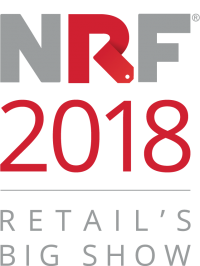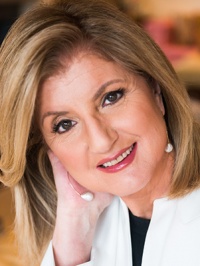
For more from NRF 2018: Retail’s Big Show on January 14 – 16 in New York City, visit the official recap.
Retail is a fascinating and rewarding industry, but it’s not an easy one. Combine the fast pace of change with seasonal pressures, constantly evolving technology and a changing consumer, and many leaders could find themselves feeling overworked and stressed out. But it’s not just the retail industry that faces these challenges, and that’s why Thrive Global’s mission is to end the stress and burnout epidemic, one science-based step at a time.
After collapsing from exhaustion in 2007, Arianna Huffington was determined to change the way we work and live. The positive reception of her two books — Thrive and The Sleep Revolution — led to the realization that she needed a bigger platform for her message. She started Thrive Global to help corporations combat the pervasive issues of stress, burnout and sleep deprivation, as well as to equip consumers with tools for well-being.
Ahead of Huffington’s panel at the Transformational leadership: Women empowering change session at NRF 2018: Retail’s Big Show, she spoke to us about how her passion for workplace wellness led her to creating Thrive Global.

Arianna Huffington
What sparked your interest in health and wellness and inspired you to start Thrive Global?
I’ve always been interested in the principles behind Thrive Global — how ancient wisdom and practices of well-being are being validated by modern science. And then in 2007, I collapsed from exhaustion. After that I became more passionate, not just about well-being, but about the connection between well-being and productivity. That led me to write my two books, Thrive and The Sleep Revolution. And as I went around the world speaking about them, and the issues of stress, burnout and sleep deprivation, I saw how deeply people want to change their lives. So I wanted to go beyond just speaking out and raising awareness — I felt the need to turn this passion into something real and tangible that would begin to help people change their daily lives. It was a call to action I just couldn’t ignore, and so I founded Thrive Global.
Why do you think organizations need to emphasize employee well-being? How does this specifically apply to retail organizations?
As studies have clearly shown, there’s a direct connection between employee well-being and the bottom line. A company’s human capital is the most important part of any company. And this applies to all companies, but especially to retail. The pace of change has accelerated in the business world, and retail organizations are facing huge challenges. Company culture, fueled by prioritizing employee well-being, acts as an immune system, building a company’s resilience to deal with change.
Tell us more about the connection between well-being and workplace performance. What is your definition of “thriving?”
When we prioritize our well-being, our creativity, decision-making, focus and productivity all go up across the board. And those are all the key components of any definition of workplace performance.
And to me, we’re thriving when we’re energetic, purposeful, enjoying our work but not defined by it, and feeling connected and in touch with ourselves, our friends and coworkers. It’s when we’re getting done what we need to get done, but not feeling harried, stressed out or anxious.
I’m reading: Principles: Life and Work, by Ray Dalio
I want to learn more about: How we can use technology to help us recalibrate our relationship with technology.
I can’t stand: High heels and sleep deprivation machismo — people bragging about how little they sleep.
In 2018, I can’t wait to: Develop Thrive Global in India and launch it in many other parts of the world, including my homeland of Greece in February.
What are some simple but powerful things retail leaders can do to improve workforce performance and well-being?
The most important thing leaders can do is to realize that taking care of their human capital is just as important as quarterly earnings. And that means modeling this more sustainable and effective way of working at the top — leading by showing, not just by telling.
Even the best well-being plans won’t be maximized if there’s not buy-in from senior management to change the incentive structure. If HR is saying one thing, but senior leaders are still incentivizing a culture of burnout, we know which message most employees will listen to.
And when employees see their leaders modeling this behavior, it creates a ripple effect, especially when employees who follow suit are celebrated and promoted.
What’s one piece of advice you would give someone who feels constantly overworked and stressed?
Get more sleep, and start by banishing your phone from your room at night. Our phones are repositories of everything we need to put away to allow us to sleep — our to-do lists, our in-boxes, our anxieties. So putting your phone to bed outside your bedroom as a regular part of your bedtime ritual makes you more likely to wake up as fully charged as your phone.
What is your favorite way to unwind from the day?
I love to have a cup of chamomile or lavender tea before going to bed, and then reading a real physical book — especially one that has nothing to do with work.
Learn more about retail’s biggest event, NRF 2019: Retail’s Big Show, in New York City, Jan. 13-15, 2019.